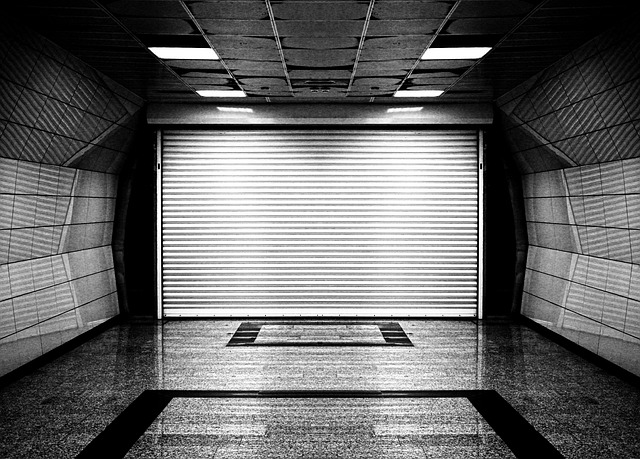Affordable Automatic Garage Door Services in Chicago
Automatic Garage Door Systems have become essential in modern Chicago homes, offering convenience an…….
Automatic Garage Door Systems Chicago: A Comprehensive Analysis
Introduction
In the bustling city of Chicago, the integration of automatic garage door systems has become a cornerstone of modern urban living. These systems not only enhance convenience and security for homeowners but also play a significant role in the city’s architecture and technological advancement. This article delves into the intricacies of automatic garage door systems in Chicago, their impact on the economy, technological evolution, regulatory framework, and the challenges they face. We will explore the global influence of these systems, their economic implications, and the future prospects that lie ahead.
Understanding Automatic Garage Door Systems Chicago
Automatic garage door systems in Chicago are a blend of mechanical and electrical components designed to open and close a garage door automatically. These systems typically consist of a motor, a control panel, a transmission system (belt, screw, or chain-driven), safety sensors, and a door equipped with automated mechanisms. The history of these systems dates back to the early 20th century when the first electric garage door openers were introduced. Since then, they have evolved significantly, incorporating advanced features like remote control access, smartphone connectivity, and enhanced security measures.
The significance of automatic garage door systems in Chicago cannot be overstated. They are integral to the daily lives of residents, facilitating smooth operation during inclement weather or when carrying heavy items. Moreover, they contribute to the broader landscape of urban infrastructure by promoting efficiency and safety.
Global Impact and Trends
The influence of automatic garage door systems extends beyond Chicago’s boundaries, with a global market that reflects technological innovation and consumer demand. The rise in smart home technology has spurred a trend towards integrating these systems with home automation ecosystems. This has led to increased adoption rates worldwide, with regions like North America and Europe leading the charge due to early market development and the presence of key manufacturers.
Emerging markets are also adopting these systems at a rapid pace, driven by urbanization and the growing awareness of security and convenience. The global impact is evident in the proliferation of these systems across different socio-economic backgrounds, signifying a shift towards smarter living solutions.
Economic Considerations
The economic landscape of Chicago and its surrounding areas is significantly influenced by the automatic garage door industry. Market dynamics are shaped by consumer demand, technological advancements, and competition among manufacturers and service providers. Investment patterns reflect a trend towards smart home technologies, with a notable increase in venture capital funding for startups specializing in IoT (Internet of Things) integration.
The role of automatic garage door systems in economic systems is multifaceted. They drive job creation in installation, maintenance, and manufacturing sectors. Additionally, they contribute to the real estate market by adding value to properties equipped with these systems. The economic impact is further amplified through export opportunities for manufacturers who supply international markets with these innovative solutions.
Technological Advancements
Technological advancements have been pivotal in the evolution of automatic garage door systems. From basic remote-controlled mechanisms to fully integrated smart systems, the progression has been marked by enhancements in safety, efficiency, and connectivity. The integration of IoT allows for real-time monitoring and control, enabling users to operate their systems remotely via smartphones or tablets.
Future potential includes advancements in artificial intelligence (AI) for predictive maintenance, biometric access control, and energy efficiency improvements. The development of more robust and secure systems will likely continue, addressing concerns around cybersecurity and ensuring the seamless integration of these systems into the smart home ecosystem.
Policy and Regulation
The policy and regulatory framework governing automatic garage door systems in Chicago is comprehensive, addressing safety standards, energy efficiency, and data security. Federal and local regulations ensure that these systems adhere to stringent safety protocols, particularly concerning the prevention of entrapment and injury. Energy efficiency policies encourage manufacturers to design units with lower power consumption, aligning with broader environmental objectives.
Legislation around data protection and cybersecurity is critical as these systems become more connected. Compliance with standards like ISO 28007 for smart home technologies ensures that manufacturers prioritize user privacy and system security. The regulatory environment will continue to evolve, especially as new challenges emerge in the realm of smart technology.
Challenges and Criticisms
Automatic garage door systems in Chicago face several challenges, including cybersecurity threats, interoperability issues among different brands, and compatibility concerns with older models. Critics also point to the potential for job displacement due to automation and the environmental impact of manufacturing and disposal processes.
To address these issues, manufacturers and service providers can focus on developing more secure systems, promoting interoperability standards, and adopting sustainable practices in production and waste management. Education and awareness campaigns can also help users understand the importance of regular maintenance and upgrades to ensure optimal performance and longevity.
Case Studies
Several case studies demonstrate the successful application of automatic garage door systems in Chicago. A notable example is the integration of these systems into green building projects, where their energy-efficient features align with sustainability goals. Another case study highlights a neighborhood’s transformation following the widespread adoption of these systems, which led to improved security and convenience for residents. These stories provide valuable insights into the practical benefits of automatic garage door systems and serve as models for other communities.
Conclusion
The automatic garage door industry in Chicago is a testament to the intersection of innovation, safety, and convenience. As technology continues to advance, these systems will undoubtedly become more integrated into our daily lives, offering enhanced security and smoother operation. The global impact of these advancements underscores the importance of responsible manufacturing, compliance with regulations, and continuous technological innovation. In Chicago and beyond, automatic garage door systems are poised to remain a cornerstone of modern urban living for years to come.

Automatic Garage Door Systems have become essential in modern Chicago homes, offering convenience an…….

Automatic Garage Door Systems Chicago have revolutionized accessibility and security with motor-driv…….

Automatic Garage Door Systems Chicago offer convenience and security but require regular maintenance…….

Automatic Garage Door Systems Chicago require regular maintenance for optimal performance and safety…….

In Chicago, securing your garage extends beyond aesthetics with high-security automatic garage door…….

Automatic Garage Door Systems Chicago are vital for modern business security and efficiency, offerin…….

Automatic Garage Door Systems Chicago offer convenience and security, consisting of a garage door, m…….

Automatic Garage Door Systems (AGDS) in Chicago homes offer convenience and security through proper…….

Automatic Garage Door Systems are essential in Chicago, offering convenience and safety with efficie…….

Automatic Garage Door Systems (AGDSC) are popular in Chicago for their convenience and security feat…….